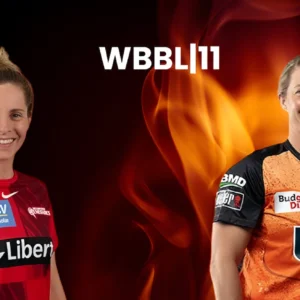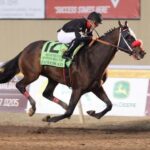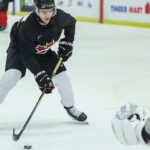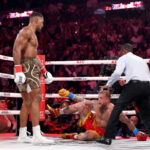In correspondence dispatched to the National Collegiate Athletic Association the previous week, Southeastern Conference administrator Greg Sankey prompted the affiliation to nullify its choice to allow university competitors to bet on proficient games, depicting the action as a “huge advance backward.”
Following an exchange about the matter during their in-person gatherings on Oct. 13, the SEC presidents and chancellors are “clear and joined” that the NCAA’s action ought to be switched, Sankey composes in the two-page letter, which was gotten by Yahoo Sports.
Any worries over the past approach to preclude competitors from wagering on all games ought to be tended to not “through a discount evacuation of the monitors” yet “cautious refinement” of the approach, the SEC contends. The inversion of the boycott undermines the “respectability of rivalry” and makes competitors more “vulnerable” to double-dealing, Sankey composes. “What may start as easygoing wagering can rapidly winding into something undeniably more genuine.”
“The SEC’s Presidents and Chancellors accept the NCAA ought to reestablish its earlier approach — or a changed approach — conveying an forbiddance on betting by student-athletes and athletic staff, paying little heed to the divisional level of their game,” Sankey says in the letter.
Administering boards of trustees over all three NCAA divisions decided to lift the betting restriction on pro sports throughout the most recent couple of weeks, and the measure was anticipated to be executed on Saturday. Nonetheless, the Division I Board of Directors, in a consistently booked meeting on Tuesday, is relied upon to examine the issue. The 16-part board, comprised for the most part of college presidents, incorporates a delegate from the SEC: Ole Miss chancellor Glenn Boyce.
On Oct. 8, the NCAA DI Cabinet, the overseeing body just beneath the top managerial staff, decided to lift the forbiddance on pro sports betting while re-stressing its standard to boycott competitors from wagering on university sports. From that point forward, a few university administrators and mentors have spoken freely condemning the action at a time when university competitors are acquiring a large number of dollars in new cash from schools as a component of an income sharing idea and NIL pay.
Most recently, Pitt mentor Pat Narduzzi tore the affiliation’s action, calling it “the most moronic choice I’ve at any point seen.”
Not long after the committee’s choice, Kansas State athletic director Gene Taylor responded via web-based media, “What are we thinking? This bodes ill for me.”
The SEC does have a representative on the DI council, South Carolina athletic director Jeremiah Donati.
In the NCAA declaration of the choice, DI council seat Josh Whitman, the Illinois athletic director, said that advisory group individuals stay worried about the dangers of sports betting however at last decided to upset the pro-sports boycott to “more readily adjust with their campus peers.”
In a manner, the action is in accordance with numerous other transformative changes inside university athletics, most remarkably changes to NCAA rules to release forbiddances around player development (move) and player remuneration (NIL). These changes — a method for keeping away from legitimate difficulties, as well — adjusted university competitors with their normal understudy body peers, who can procure remuneration from their NIL, move schools openly and bet on pro sports.
Truth be told, with its declaration, the NCAA included remarks from the National Council on Problem Gambling saying that the choice is a method for making more chances for competitors to “talk straightforwardly about their betting conduct” and “empower access” to look for help. The standard change was likewise upheld by the DI Student-Athlete Advisory Committee, which mentioned that the change accompany proceeded and upgraded training and backing for university competitors on betting.
The NCAA gives competitors a few roads to look for help for betting issues, including archives framing sports betting assets, and psychological wellness best practices, as well as sending off an e-learning module and leading continuous exploration to more readily comprehend betting practices. Information from one review shows that 67% of college students participate in sports betting consistently.
The NCAA’s choice doesn’t keep a singular conference or school from prohibiting their competitors to bet on pro sports. While neighborhood strategies “may be thought of” in the long run, Sankey composes in his letter that “the NCAA’s approach has long stood as an articulation of our aggregate uprightness, and its expulsion conveys some unacceptable message at a time when the betting business is extending its compass and impact.”
The SEC’s letter features the latest sports betting outrage in the NBA, which shows that “even mentors and competitors with broad oversight, training and backing frameworks” can get found out in direct that compromises contest.
“It is predictable that university competitors, with far fewer assets and far more noteworthy outside influence, can be engaged with compromising conditions,” Sankey composes.
In its declaration of the change on Oct. 8, the NCAA says its implementation staff’s caseload including sports betting infringement has kept on expanding as of late, in which the majority of the infringement “include direct that straightforwardly affects the uprightness of university sports.” The NCAA utilizes a layered technique with honesty checking administrations to screen in excess of 22,000 university sports games every year to identify uncommon line exercises.
In September, the NCAA Committee on Infractions delivered the main infractions cases for previous men’s ball competitors who bet on their own games and at times participated in game control for sports betting reasons. The implementation staff is likewise during the time spent claiming comparative infringement for one more 13 competitors from six other NCAA schools.











